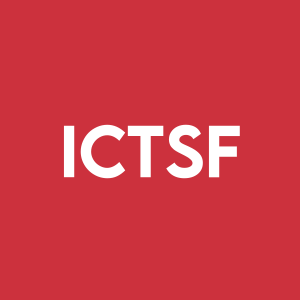AU10TIX Q1 2024 Global Identity Fraud Report Identifies Online Gaming Industry as New ID Fraud Hotspot
AU10TIX released its Q1 2024 Global Identity Fraud Report, highlighting a 250% increase in identity fraud in the online gaming industry compared to Q4 2023. The payments sector remains the primary target, accounting for 62% of all fraud attacks, up from 39% in Q1 2023. Key trends include attacks via “bonus abuse” in online gaming and the use of US passport ID cards due to their susceptibility to deepfake manipulation. AU10TIX provides actionable insights for combating fraud, including the effectiveness of selfie capture and the need for improved KYC protocols in both gaming and payment sectors.
- Online gaming fraud increased by 250% in Q1 2024, indicating growing market awareness and the need for better security solutions.
- Payments sector fraud increased by 59%, highlighting the need for enhanced KYC and AML protocols.
- Selfie captures deter fraud efficiently, representing less than 5% of attacks.
- AU10TIX's advanced machine learning and multi-layered defense system detect sophisticated fraud that other IDV platforms miss.
- Online gaming platforms heavily impacted by 'bonus abuse,' with 50% of attacks in this category.
- Payments sector fraud accounts for 62% of all attacks, showing it as a significant vulnerability.
- US passport ID cards are the most forged documents, easily manipulated by deepfake technology.
Unique View into Large-Scale Organized Identity Fraud Shows That Lax Regulations Continue to Propel Payments Sector Attacks
This marks the first time that AU10TIX has recorded such high fraud numbers in the online gaming sector.
Fraudsters have also increasingly targeted the payments sector over the past year, viewing it as a soft target due to its limited regulation. Since Q1 2023, its share of overall global identity fraud has grown from
AU10TIX's report also compares the frequency of different fraud documents and modes, including document number, personal data, face picture, image template, and facial image capture (selfie). US passport ID cards continue to be the most forged documents, because they are easy to synthesize with deepfake technology and bypass monitoring systems undetected. As in previous quarters, fraud involving selfie capture represented less than
"Organized criminal groups are increasingly using AI to commit large-scale, coordinated identity fraud," said Dan Yerushalmi, CEO of AU10TIX. "Our advanced machine learning technology, multi-layered defense system, and consortium of 60+ tier-1 companies enable us to detect and prevent this sophisticated fraud, which most IDV platforms miss. We are committed to protecting our customers and leading the way with innovative, future-proof solutions that address emerging challenges effectively."
AU10TIX's Q1 2024 Global Identity Fraud Report offers three actionable insights to help organizations protect against identity fraud:
- Selfies stop fraud! Fraudsters find facial image capture an extremely difficult verification method to circumvent.
- Gaming providers can eliminate bonus fraud and ensure compliance by implementing robust KYC and age verification.
- Payments providers should strengthen their own KYC, KYB and AML protocols in the absence of strict regulations.
About AU10TIX
AU10TIX plays a pivotal role in establishing trust between individuals/companies and digital systems. Founded in 2002, it is the global leader in identity verification and management, protecting the world's largest brands against advanced fraud. The company's future-proof product portfolio helps businesses provide frictionless customer onboarding and verification in 4-8 seconds while staying ahead of emerging threats and evolving regulatory requirements. AU10TIX offers the world's only
![]() View original content to download multimedia:https://www.prnewswire.com/news-releases/au10tix-q1-2024-global-identity-fraud-report-identifies-online-gaming-industry-as-new-id-fraud-hotspot-302160811.html
View original content to download multimedia:https://www.prnewswire.com/news-releases/au10tix-q1-2024-global-identity-fraud-report-identifies-online-gaming-industry-as-new-id-fraud-hotspot-302160811.html
SOURCE AU10TIX








